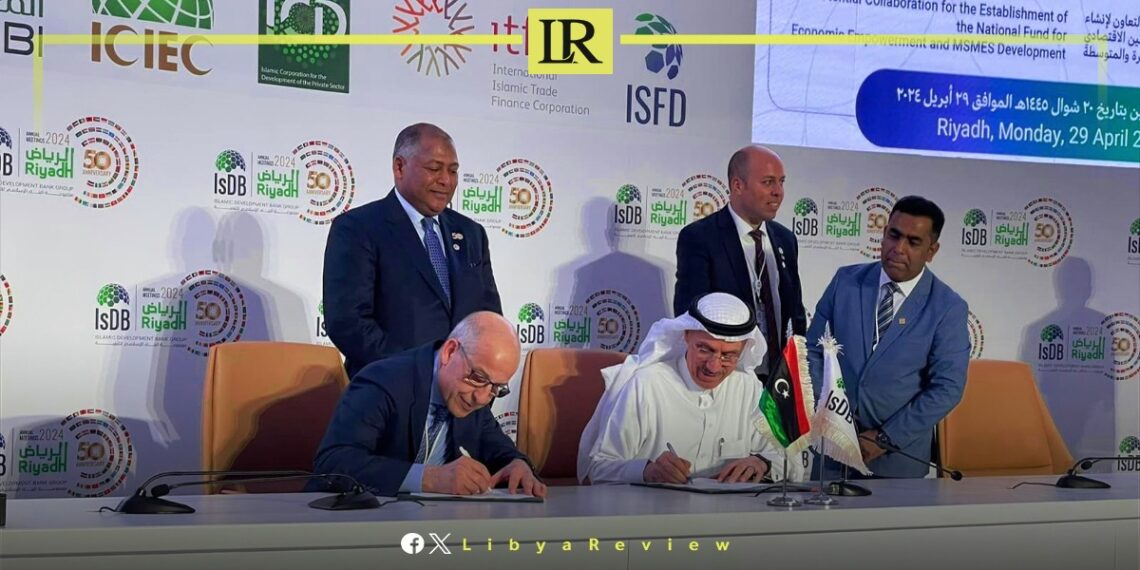On Saturday, the US Embassy in Libya announced that the United States government, through the United States Agency for International Development (USAID), has signed a Memorandum of Understanding with the Islamic Development Bank and the Central Bank of Libya. This memorandum aims to facilitate access to financing opportunities through the Tamkeen Fund for micro, small, and medium enterprises (MSMEs) in southern Libya.
According to the US Embassy, this partnership will help promote business development, create job opportunities, and enhance economic growth and stability in the region.
Since the 2011 revolution that led to the ousting of Muammar Gaddafi, Libya has faced significant economic and political challenges. The aftermath has seen the country fragmented, with competing governments and various armed groups vying for control. This instability has severely impacted Libya’s economic infrastructure and hindered growth, particularly in the southern regions, which are often overlooked in national development plans.
Southern Libya, despite being rich in resources, has struggled with high unemployment rates and limited economic opportunities due to insecurity and underdevelopment. The region’s isolation from major economic hubs in the north has exacerbated these issues, making it difficult for local businesses to thrive.
USAID has been actively involved in supporting Libya’s development through various programs aimed at promoting economic stability and democratic governance. The recent memorandum with the Islamic Development Bank and the Central Bank of Libya represents a strategic effort to address economic disparities in the southern regions by providing much-needed financial support to local enterprises.
The Tamkeen Fund, established to support MSMEs, is a crucial component of this initiative. By facilitating access to financing, the fund aims to empower local entrepreneurs, stimulate business growth, and generate employment. This, in turn, is expected to contribute to broader goals of economic stability and national unity.


